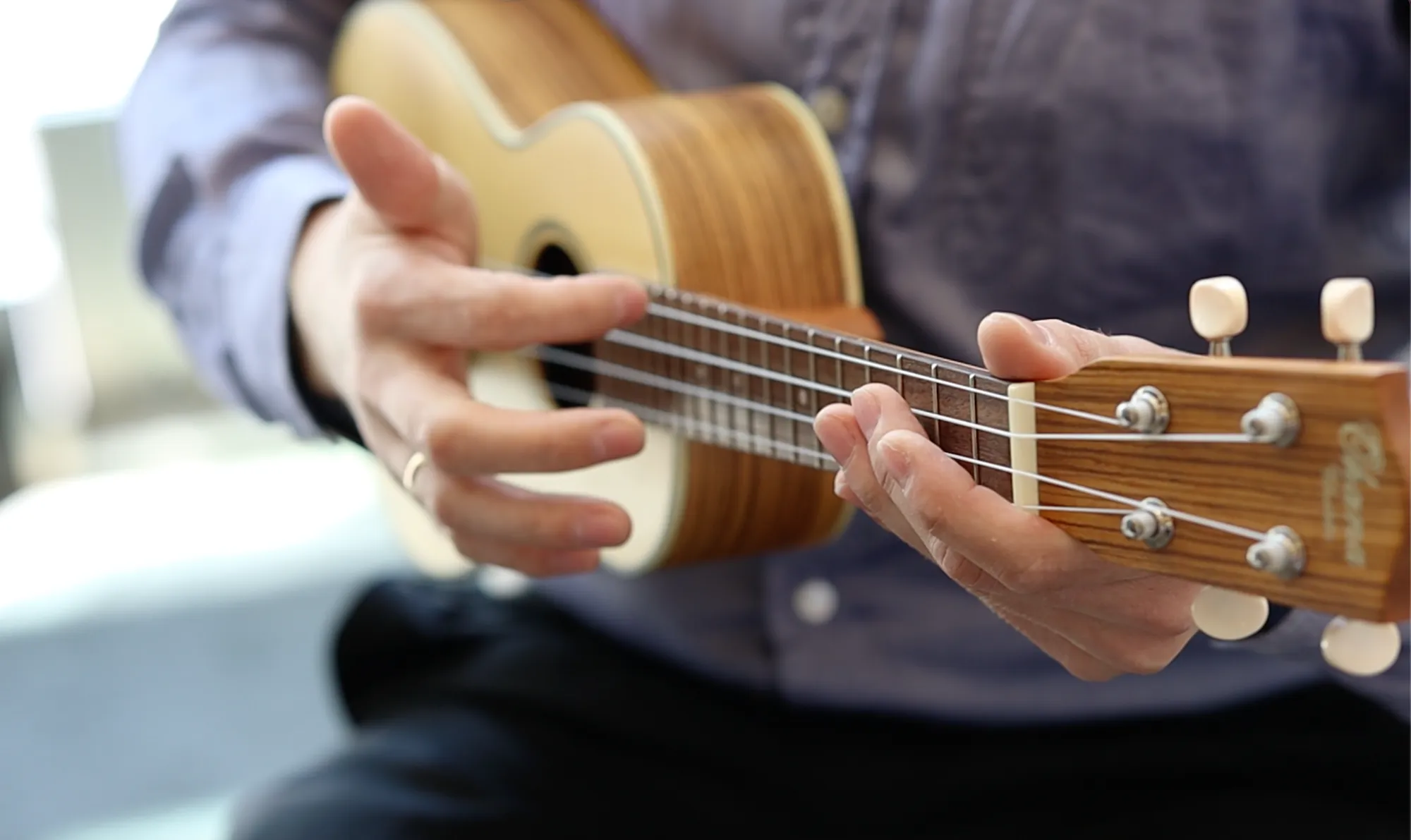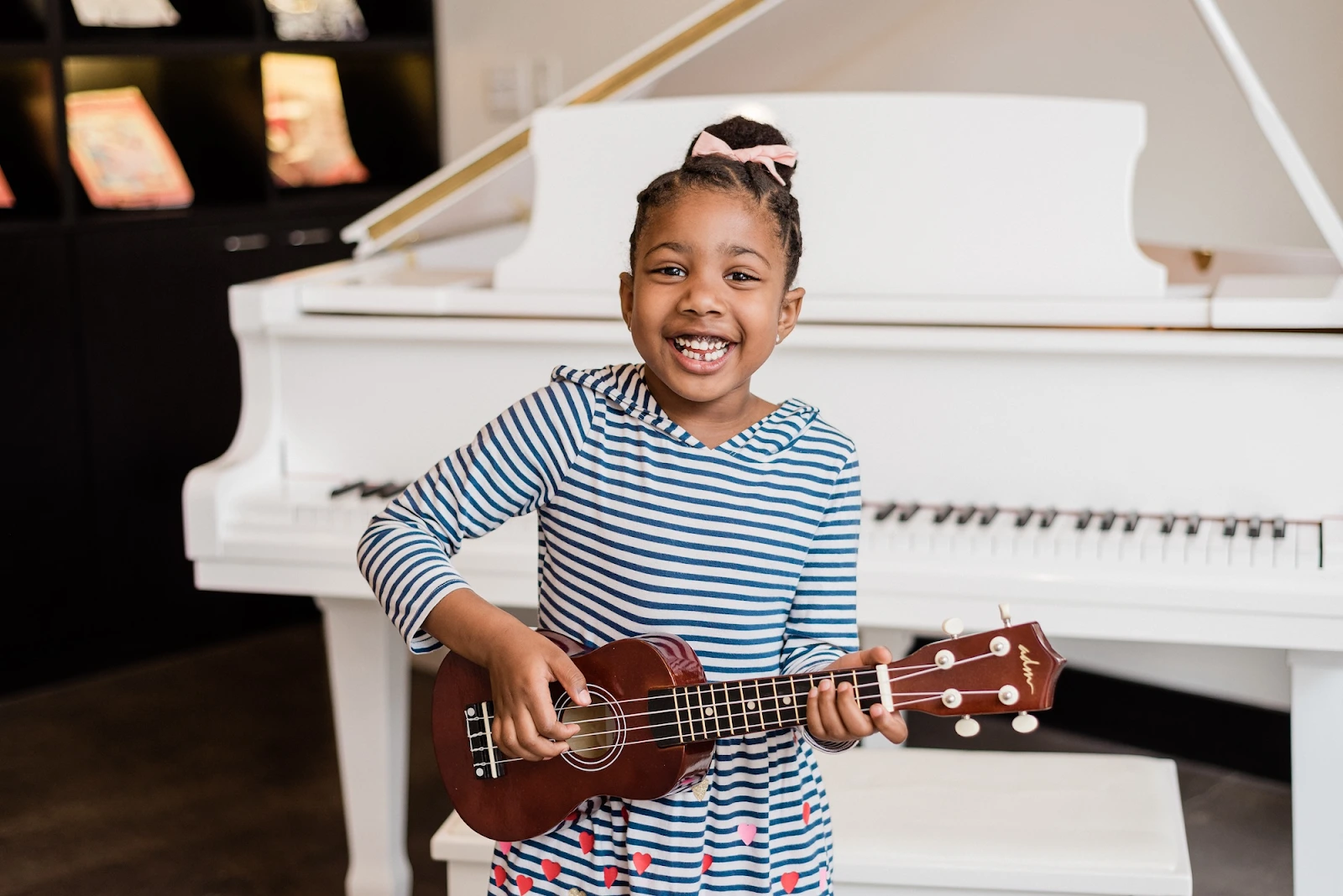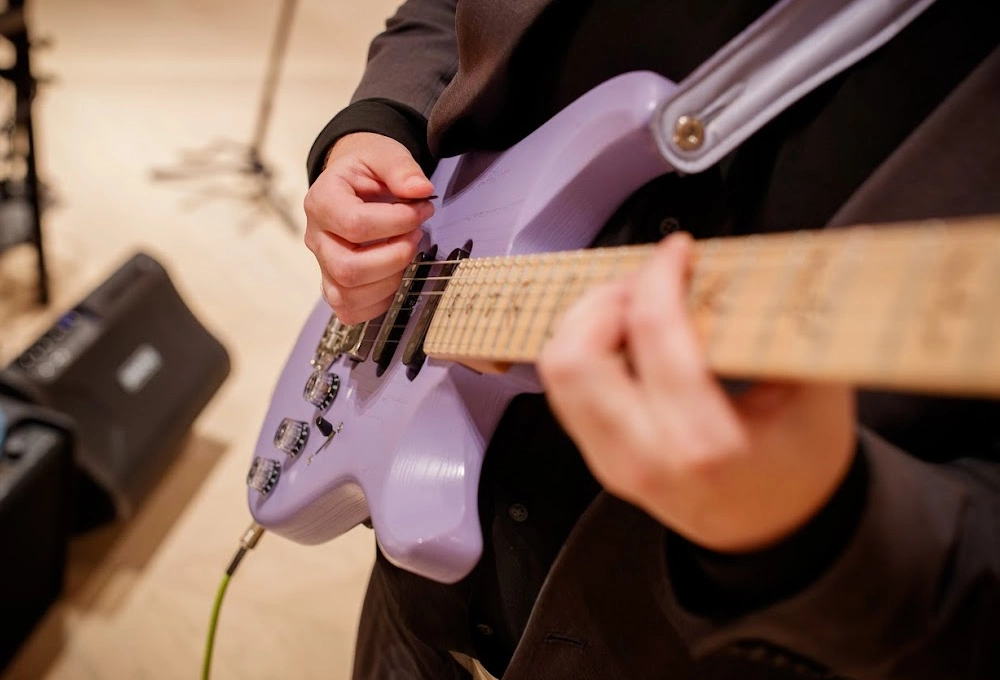Jazz is a language. But unlike most languages, it isn’t spoken, it’s played. And if you’re here, something tells me you’ve heard that language before: maybe in a smoky solo, a laid-back comping groove, or a melody that moved like warm butter over a swing rhythm.
That sound lives inside you. And through the right jazz guitar lessons, you can learn how to speak it fluently.
Maybe you were searching for something like jazz guitar lessons near me, or even the best online jazz guitar lessons. Whatever brought you here, welcome. I’ve been teaching and living jazz guitar in LA for over 20 years.
And what I can promise you, from one musician to another, is that this journey will change the way you feel music.
Let’s dig in.
Why Jazz Guitar Is a Different Kind of Adventure
Jazz guitar is its own universe. It’s not just about flashy technique or memorizing scales. It’s about listening, responding, and creating.
It’s a conversation between you and the music, between you and other players. The deeper you go, the more you realize: jazz isn’t about playing more notes. It’s about playing the right ones.
A big part of what we focus on in jazz guitar lessons is harmony. And the real MVP of jazz harmony? The ii–V–I progression.
Take the key of C major: Dm7–G7–Cmaj7. That little chain of chords is everywhere in jazz. It’s like the “once upon a time” of jazz standards. You’ll learn how to comp it, solo over it, and reharmonize it. It’s not just a set of chords. It’s a launchpad for storytelling.
We also work with shell voicings: minimalistic 3-note shapes (root, 3rd, 7th) that sound surprisingly full. These are like the bones of jazz harmony. You learn to play smarter, not harder.
Omitting the 5th might sound sparse, but it spreads out the harmony (so bass and piano fill in missing notes) and leaves space for melody. Even B.B. King showed us: sometimes a single bent note with vibrato says more than a shred of notes.
In jazz lessons, we practice holding those 1–3–7 notes firmly and adding tasteful tensions (9ths, 13ths, b9’s) for color.
The cool part? Once you get these concepts under your fingers, the whole neck starts to light up like a map. And suddenly, you're not just playing guitar. You're playing jazz.
What You Must Look For in Jazz Guitar Lessons
The Fundamentals That Build Freedom:
- ii–V–I Progressions: Learn to recognize, voice, and solo over them in all keys. Start with simple movements and gradually add substitutions, chromatic approaches, and voicings with extensions. Voice-lead smoothly (common tones move by half-steps) through progressions like ii–V–I in all twelve keys.
- Shell Voicings & Extended Harmony: Get comfortable with 7th, 9th, 13th chords, starting with root-3-7 voicings and then adding flavor. This gives you clarity and freedom whether you’re comping behind a singer or playing solo.
- Improvisation & Bebop Language: Jazz guitar lessons aren’t about memorizing licks. They’re about learning how to think musically. Dive into arpeggios, enclosures, guide-tone targeting, and phrasing, so your solos sound natural, not robotic.
- Comping & Rhythm: Learn to create groove and momentum through feel. Comping is its own art form. Learn how to lock into swing, create space, and support the band like a pro.
- Chord Melody & Repertoire: Study how to combine melody and harmony into one rich sound. And you’ll build your own jazz vocabulary by learning tunes like “Autumn Leaves,” “Blue Bossa,” or whatever inspires you most.
- Walking Bass with Chords: Get into walking bass lines under your chord voicings. It’s a beautiful skill for duo or solo playing.
Make sure every lesson is tailored. Our guitar lessons in Los Angeles move at your pace, but with enough fire to keep things exciting

In-Person vs Online Jazz Guitar Lessons
Here in LA, we’re surrounded by the pulse of music. When you take in-person jazz guitar lessons, you’re not just learning theory or shapes; you’re feeling sound in real time.
You’re lucky if you get to sit with an experienced trainer, hear your tone, adjust your hand position, and shape your phrasing on the spot. That nuance makes a huge difference. It’s like the difference between reading a recipe and tasting the food while the chef teaches you.
Sure, there are plenty of jazz guitar lessons online or YouTube jazz guitar lessons, and they’re a great supplement. But jazz is a community-driven, reactive, improv-based art form that feeds on the energy of other musicians and the audience and adapts accordingly.
And if you’ve been searching for jazz guitar lessons in Los Angeles, CA, or wondering where to find the right guitar lessons LA has to offer, this is where it starts.
Jazz in Los Angeles: A City That Swings
Los Angeles is a hotbed of jazz history and clubs, perfect for inspiration. From the historic Central Avenue era to today’s vibrant scene, LA jazz has flavor.
You might study here and then catch an open-jam at the Lighthouse Cafe (Monday night jam where La La Land was filmed), or groove to organ jazz at The Baked Potato, or hear legends at Herb Alpert’s upscale Vibrato Grill.
There’s a vibe in the air. Student recitals, jam nights, and festivals year-round. As one LA Times writer noted, spots from the Baked Potato to Vibrato show the city’s “wide variety of flavors” in jazz.
Maybe we’ll watch a clip of a Larry Carlton solo after comping at the local brewpub, or analyze Wes Montgomery’s thumb-roll groove.
Just hearing a live jazz band with guitar, say Chris Standring at Catalina Jazz Club, cements what we learn in lessons.

And the camaraderie is real: Angeles Academy students often meet for jam sessions or even form combos. There’s nothing like the thrill of a jazz class or student showcase in Westwood.
When we teach you a chord or phrase face-to-face, you immediately hear how it should ring out. We tweak your tone (maybe add thumb on neck pickup for warmth), fix subtle timing issues, and even adjust your guitar’s action if needed.
And we can jam on the spot: I might set a swing groove on piano so you can comp along. That kind of give-and-take just can’t be replicated in the same way twice.
Now, time for some questions students most commonly ask.
FAQs
Is jazz easy to learn on guitar?
Jazz isn’t easy, but it’s hugely rewarding. It’s like learning a new dialect of music: the basic vocabulary (major/minor chords, scales) is accessible to any guitar player, but the fluency (improvising confidently, understanding complex chords) takes time.
Think of it as a marathon, not a sprint. In my 20 years of teaching, I’ve seen beginners make jazzible progress by tackling one piece at a time. A chord, a lick, a tune.
And gradually the whole language clicks. The key is consistent practice and guidance: when you have a teacher pointing out what to focus on, jazz becomes much more manageable (and fun!).
Why do jazz guitarists not bend strings?
In straight-ahead jazz, we rarely bend notes for a few reasons. Traditionally, early jazz guitarists like Charlie Christian emulated horn players: saxophonists and trumpeters almost never bend pitch.
Jazz solos became lightning-fast bebop lines, too quick to hold and bend a note without losing clarity. Also, the classic jazz guitar setup (hollow-body archtops with heavy flat-wound strings) simply resists bending.
Those thick strings and guitar construction give a warm, stable tone, but make bends very hard. Some modern jazz fusion or bluesy jazz players do bend (think Mike Stern or Larry Carlton on solid-body guitars), but in pure jazz we usually keep it clean and straight, favoring linear phrasing over bluesy bends.
Is jazz guitar harder than rock?
It’s different. Rock gets you moving fast. Jazz asks you to slow down and listen.
Jazz guitar dives deeper into harmony and ear-training. You’re learning extended chords (7ths, 9ths, 13ths), voice-leading, and improvisation over changing chords. In that sense, yes, jazz can be more complex.
But “hard” is relative: a rock song with a crazy tapping solo can be very hard too!
But here’s the secret: the more you learn jazz, the more every other genre makes sense. Your ears get sharper. Your phrasing gets smoother. And you start hearing music in a whole new way.
Once you’re comfortable with jazz harmony, playing rock solos or blues licks usually feels easier in comparison.
Why is jazz hard to learn?
Jazz is often called a “musician’s music” because it demands understanding beyond just chords, fingerpicking, and melodies. It’s hard at first because it requires learning theory (think chord scales, substitutions, altered dominants) and developing the ear to hear them.
You have to get comfortable with swing rhythm, syncopation, and often a looser sense of time (lots of jazz lines sit around the beat!).
It takes practice to build the coordination to comp complex chords and solo fluidly. However, we break it down step-by-step.
Every student struggles with some part. Maybe chord changes at first, or timing. We address that with exercises (metronome work, slow practice, motif repetition). Over time, what was once hard becomes natural, and that “language” we struggled with starts to sound like home.
Jazz has its challenges, but that’s part of what makes it exciting. It’s a conversation you get better at by listening (to records, live clubs) and by talking (jamming, soloing). At Angeles Academy, we guide you through every stage: from your first jazz chords to playing confident solos with confidence.
Bringing It All Together
Jazz guitar is a lifelong journey of discovery, but you don’t have to wander it alone. Our jazz guitar lessons blend fun, flair, and serious technique. We use real musical examples bebop phrases, walking bass lines) to make theory practical.
You’ll feel the groove of LA’s jazz culture in each session, whether we’re quoting a Dexter Gordon lick or imagining you on stage at Vibrato.
Ready to swing? Whether you’re in L.A. or anywhere else, our jazz guitar program will light your creative spark. The right mentor can turn confusion into confidence.
At Angeles Academy of Music, students find that eureka moment: one day you’re playing a simple blues shuffle, and the next you’re confidently navigating “All the Things You Are” with fresh chord voicings and improvised lines.
Swing by our Brentwood or Westwood campus for a free trial lesson, or check out our online jazz guitar lessons. Let’s make jazz feel as natural as breathing. One chord, one solo at a time.
.svg)
.svg)
.svg)
.svg)
.svg)
.svg)





.svg)